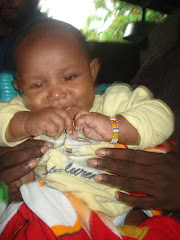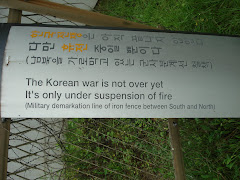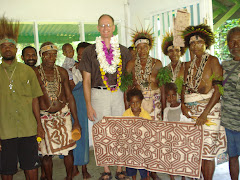Good evening. In his invitation to me, Richard Carter wrote: "In your talk I would like you to focus on what the response of the faith community is, should be and needs to be to the devastation of our ecology and the need to change and the choices we have to make as those called to be caretakers of creation... In The Archbishop of Canterbury’s words: 'The call to live on this planet without killing it and killing each other.'”
In the short time available to me I want to do a couple of things. First to hold up and celebrate what the faith community is doing about the challenge facing our planet earth. And I want to agitate us as we consider the choices we have to make as those called to be caretakers of creation. I will do that by amplifying the voice and example of a man I find incredibly agitating and inspiring, St. Francis of Assisi. There are some writers who are doing the same thing, and I'd like to acknowledge especially Sister Ilia Delio, OSF, a Franciscan sister of Washington DC. She is a professor at Washington Theological Union. She is perhaps one of the most prominent Franciscan writers on creation and the environment that I know of. I've never met her, but she is a sister in the struggle. I acknowledge her teachings and example tonight as we take note of the response of the faith community to our ecological crisis.
What is the response of the faith community? I did a web search and tried to make a list of different things, but soon became swamped in a huge amount of material. Religious people care about the environment. There have been and will continue to be innumerable mentions in worship services and specially-themed liturgies. The faith community is praying for the Earth. We promote efforts to save her and change our destructive ways of living on her. Just do a quick internet search and you will see for yourself! People of faith are active in litter clean up campaigns, recycling efforts, protesting toxic waste and challenging the ways we get rid of garbage. Many churches and religious organizations hold symposiums and special awareness campaigns. I have signed petitions in churches and participated in letter writing campaigns to elected officials. I think it is important to say "Well done" and "Keep up the good work."
In light of all this faith activity, one of the messages we need to keep putting out there, as simply and powerfully as we can, is that prayer works. It has the power to change hearts, open eyes and unleash creativity in the world. We see it happening at the local level, in Copenhagen I pray we'll see it happening on a global scale. "Prayer is at the heart of this," Delio says. "...It's God's wisdom and God's love in creation that we're called to live in and share" (US Catholic June 2009). Prayer, or openness to God, is what the earth and our ecological crisis most desperately needs.
Praying can motivate us to action. There are practical steps that you and I can take in the face of something that seems so incredibly large and overwhelming. One of the most important things for us as religious people to do is to affirm the power that each of us has to make a difference. We live in a world that recognizes the power of a butterfly to make an impact on global weather patterns; nothing we do is inconsequential. The power of art to move us deeply and propel us forward is unquestioned. The impact of Mark Edwards' photographs is palpable in this room tonight. Part of what I hope is happening for you is that you are beginning to see yourself as a member of a movement or network of concerned and committed people.
This is the first choice that confronts us: choose to be part of a community of people addressing the ecological crisis with creativity, compassion and thoughtfulness. I believe we are called by the Spirit to be part of a global movement for change. Keeping this sense of solidarity alive will be our greatest resource. we must pray and work together, struggling against the forces which would separate us, belittle our efforts and give us pause. "They" only need to distract us briefly to seize more rainforest, dump more waste, sign more contracts for wasteful cars.
Solidarity with other people and creation is a modern way of approaching the teachings of St. Francis of Assisi. St. Francis' life example teaches some basic Christian understandings about creation that haven't always been taken seriously. We can't ignore these things any longer. Creation is the work of God, and God is in and of it all. And God isn't done yet. God is still creating. God is using us as creative instruments to heal the planet. Every part of creation points to God's love, and must be reverenced. Francis preached passionately that we all come from the same source. He sang of it in an important theological statement, his Canticle of the Creatures. In a deep and integral way We are kin to each other: human, animal, vegetable and mineral, the stars and planets, the errant breezes and rolling streams, Brother Sun, Sister Moon, Brother Wolf, Sister Water, Mother Earth. Because Francis recognized the claim we creatures have on each other, he worked to overcome enmity and division. He creates a bond for us between ecology and peace-making. We need to strengthen that link! I think his understanding of what it meant to be a human being was in part to recognize this elemental relationship with everything else. You can't be fully human in isolation from the rest of the world.
This Franciscan insight of interrelatedness has moved my sisters and brothers to do what they can to save the planet. Everywhere we recycle, farm worms and do things like that. One of my Society of St. Francis brothers in the Solomon Islands, Lent Fugui,

has been planting trees and writing about what he sees when he looks at the world. I quote from his degree thesis for Bishop Patteson Theological College in the Solomon Islands. It is a nuanced vision: "[R]ecent years [have shown that we] are not at ease with the natural world[.] [We] have shown considerable...opposition towards the natural world and have attempted to create the illusion that we are not part of nature..." But at the same time he describes the beauty of an ecosystem re-claimed and revitalized in a project begun by Br. Gilles, SSf, 15 years ago. It is exciting to see today, with Lent's leadership and careful work planting hundreds of trees, what has happened at Hautabu, our friary on the western tip of Guadalcanal--formerly bald grassland created by cutting timber and burning underbrush. It is a pledge of the hope that inspires us tonight: "[Because of our re-forestation work] Hautabu is now a home for wild growth...of different species...trees, weeds, animals, wild pigs[;] [you can now find] dogs growling, barking and dancing the night away...insects...snakes crawling and hissing, finding a place to rest...birds flapping and flying [and] singing sweet songs...Earth worms finding their way in and out of the soil and in doing so taking up their duty to nurse the land and [encourage] the living organisms to function well..." As Br. Lent has so eloquently described, we share this fragile home with many other creatures, all of whom have a perfect right and a rightful place in the wholeness of the earth. The loss of any human life to war, poverty, famine is an aching wound in human society. Every species we lose to the devastation of the natural habitats is a serious loss for us all. And yet, as you can understand with tree planting and many other activities, we can take a role in the work of creation and bring healing to our distressed globe.
Right here in England, the brothers of the Society of St. Francis have founded an interfaith environmental project, the Hilfield Project in Dorset. The goals of the project are the same as the brothers' in the Solomon Islands: raise awareness of our interconnectedness, educate people about ecology, gardening and good forestry practices, expose humans to the earth and each other, foster the political and spiritual will to save the planet. Come to Dorset and check it out!
Thus, another choice facing us this evening is to develop a real relationship with the environment around us, listen to the birds, admire the trees. The Franciscans around the world are inviting you to an embodied experience and response to the world. It is a very good way to remember what is at stake in our current crisis.
However, I cannot underscore the urgency of the situation enough. Because of what Br. Lent calls "our considerable opposition to the natural world" we are beginning to lose our homes and countries. The natural habitat we call the earth is deteriorating. Br. Lent and I have other brothers--men from Ontong Java, or the Lord Howe Atoll in the Solomon Islands--where the government of the Islands and the Anglican Church of Melanesia are beginning to create strategies for moving the population because of rising sea levels. It is a shock to me that I know people who are already suffering a direct consequence of global warming as dramatic as this. Real people fleeing ancestral lands which are disappearing for ever.
Lets just take a moment and think about the perpetrators of the global crisis. To a degree we are all implicated...I hate that, but I know I am as an American citizen (we consume more of the earth's resources than anybody else). It is a corollary of the belief that we are all interrelated. I have another brother writing a degree thesis. This one is for Newton College, Popondetta, in Papua New Guinea.
 Br. Oswald Dumbari writes very critically about the major players in the ecological crisis. Citing cronyism and bribery among government officials, he chronicles the destruction of the natural ecology in Papua New Guinea through irresponsible mining, timber cutting and oil palm plantations. As a result of political corruption which ennables unregulated extractive industries to spoil the environment, Br. Oswald states: "the environment has been damaged so badly [it has] [resulted] in climate change." The basest human motives for personal profit without regard for others is at the heart of our ecological crisis, he says. Throughout the world, unscrupulous politicians and their greediness for money have unleashed destructive powers that are easy to identify: unregulated factories, petroleum dependent automobiles, politically connected (and armed) ranchers lighting forest fires in environmentally delicate and important areas like Papua New Guinea and Brazil. You know the list as well as I do.
Br. Oswald Dumbari writes very critically about the major players in the ecological crisis. Citing cronyism and bribery among government officials, he chronicles the destruction of the natural ecology in Papua New Guinea through irresponsible mining, timber cutting and oil palm plantations. As a result of political corruption which ennables unregulated extractive industries to spoil the environment, Br. Oswald states: "the environment has been damaged so badly [it has] [resulted] in climate change." The basest human motives for personal profit without regard for others is at the heart of our ecological crisis, he says. Throughout the world, unscrupulous politicians and their greediness for money have unleashed destructive powers that are easy to identify: unregulated factories, petroleum dependent automobiles, politically connected (and armed) ranchers lighting forest fires in environmentally delicate and important areas like Papua New Guinea and Brazil. You know the list as well as I do.However the only way we can make an impact on the large-scale polluters is through government intervention and global governmental collaboration and cooperation. While corrupt government officials are deeply implicated in the cause of our problems, we can thank God for many leaders of integrity. They just need encouragement. we must find a way to engage them in critical self appraisal and learning to operate differently. Guess who will be in Copenhagen? Our very own governmental officials. Changing the way government works will only happen through direct and continuous pressure by many people. St. Francis is a model for us here, too. He wrote "A Letter to the Rulers of the Peoples" in 1220. It is an oddball sort of letter, but he understood that if you wanted change you had to engage the leaders. "Reflect and see that the day of death is approaching," he wrote. He had an strong message! And a timely one for us, too. He wanted the civil authorities to be mindful of Gospel truths. We pray for a commitment to honesty and integrity among our civil leaders and a deep awareness of our interconnection. We have to see letter writing, and encouraging our leaders to embrace earth-friendly values, as part of our faith practice. We must engage the decision makers and tell our story as vividly as possible. What we are talking about is creating political will. As Mr. Obama once said to America: "We invented solar power, we've got to learn to use it." As St. Francis recognized, we have a sacred obligation to address our leaders, correcting them when they are in error, and thanking them when they speak out. As governments prepare for the summit in Copenhagen, we must do whatever we can to make our opinions heard: dial in, log on, speak out.
Thus a third choice for us tonight is to become active or deepen our political involvement. We can write letters, shoot videos and post them on You-tube, start an e-mail campaign or simply sign onto the initiatves of others, the list is endless, limited by our creativity. Thank God for Mark Edwards and his camera!
To sum up: inspired by St. Francis, I offer four urgent imperatives:
Keep praying! Pray to God, live lightly on the earth and mindfully of the Gospels. I suppose that is St. Francis' message in a nutshell.
Choose to be part of a community! Seek solutions to our problems in solidarity, working together. It is essential for us.
Develop a real relationship with the world! Love it! As angry or fearful as you might be, love is the only power that makes any lasting changes. Get outside in the rain and the sun and live with gratitude for the beauty of all that is around you. Fall in love with the dogs dancing the night away, birds singing sweet songs, children playing in the park. Plant trees.
Get political! Dont be shy of politics. It's your spiritual obligation to do so. Memorandums, resolutions, treaties: these are the mechanisms, the documents, that force reluctant (or corrupt or wicked) people to become accountable to the rest of us.






No comments:
Post a Comment